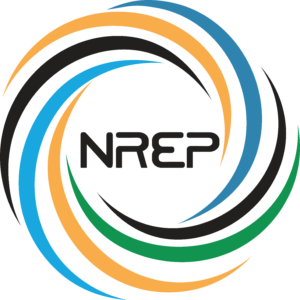Kabale City in southwestern Uganda known for its rich food culture, has for generations long relied on wood and charcoal to prepare staples like kalo, matooke, Irish potatoes, and beans. Although electric cooking as an alternative has existed for a while, many residents remain skeptical of its ability to handle these traditional meals or preserve their familiar taste. On May 6th, 2025, the National Renewable Energy Platform (NREP), in partnership with the Uganda National Alliance on Clean Cooking (UNACC) and the Ministry of Energy and Mineral Development, with support from UKAID through the Modern Energy Cooking Services (MECS), launched a week-long clean cooking campaign in Kabale Municipality aimed at creating awareness about electric cooking technologies and dispel common myths related to electric cooking. The initiative included a one-day workshop and a six-day exhibition to showcase various electric and clean cooking technologies. It brought together community leaders, residents, and stakeholders to engage with and evaluate sustainable cooking options firsthand.
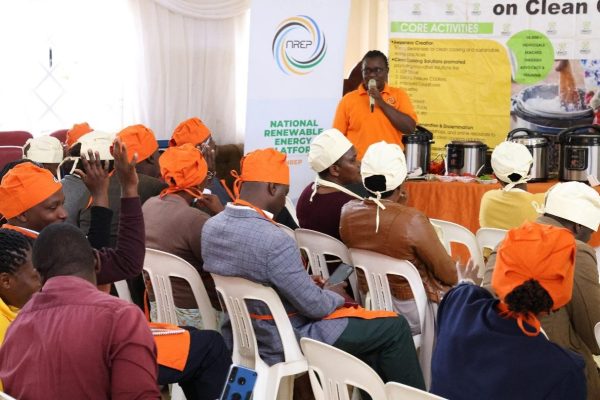
Key Highlights
The clean cooking workshop held in Kabale was a vibrant and impactful gathering that brought together over 60 stakeholders, including city council officials, educators, religious leaders, and business representatives. More than just a dialogue, the session featured, hands-on demonstrations with electric pressure cookers, practical training, knowledge-sharing, and vibrant group discussions. Participants openly discussed the health and environmental impacts of continued reliance on traditional fuels such as firewood and charcoal, which remain widely used across the region.
The event was strongly supported by Kabale’s leadership. Key speakers included Mayor Byamugisha Sentaro Emmanuel, Deputy Mayor Kedress Mutabazi, Town Clerk Mr. Kasajja Jamil Kairu, and District Environment Officer Mr. Alfred Ahimbisibwe.
What made the event stand out was its action-oriented approach. Local leaders like Deputy Mayor Mutabazi described the campaign as “a timely intervention to improve public health and conserve our forests.” Mr. Kasajja emphasized the need to use of social media and local languages to ensure inclusive and far-reaching awareness. Additionally, Mr. Ahimbisibwe praised the initiative as a powerful reinforcement to ongoing environmental education efforts. “This aligns perfectly with what we teach about energy efficiency and sustainable living,” he noted, urging participants to become advocates of clean cooking within their communities.
Change came in the form of live demonstrations. Participants watched closely as electric pressure cookers prepared traditional Ugandan staples such as kalo, rice, dry beans, and beef. For many, it was the first time witnessing the technology in action, initial curiosity was apparent. Midway through the session, an unexpected power outage briefly unsettled the room with questions arising as to whether the cooking process had been compromised. Rather than derail the demonstration, the power became an opportunity to showcase a key technical feature of the electric pressure cooker. Ms. Jackline Namaadi from UNACC calmly explained that the EPC had retained both pressure and heat despite the interruption and would continue to prepare the beans to completion. When the cooker was eventually opened, the beans were found to be thoroughly and evenly cooked. This outcome provided clear, firsthand validation of the capabilities of the EPC appearing as a “blessing in disguise” moment.
By the end of the event, 68% of participants pledged to become clean cooking champions within the Kabale region. This commitment signaled more than just verbal support but reflected a genuine shift in mindset and the potential for a ripple effect that could transform cooking habits across the district.
Meanwhile, at the park yard exhibition, residents explored a range of clean cooking technologies, including electric pressure cookers and improved biomass stoves. Many were enthusiastic to learn how these innovations could help them save time, reduce fuel costs, and improve household health.
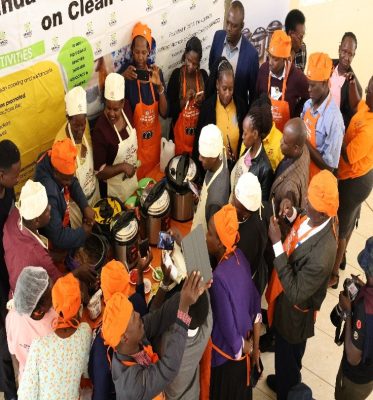
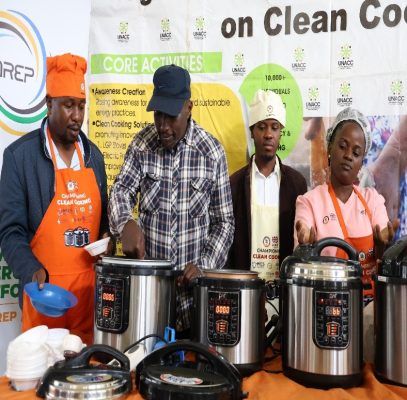
Key Challenges & Lessons Learned
While enthusiasm for clean cooking solutions was evident, several key concerns were voiced. Chief among them were electricity reliability, the perceived high cost of electricity, and the affordability of clean cooking appliances. Many residents associated electric cooking with high utility bills, a misconception stemming from past experiences with inefficient technologies. Additionally, the lack of consistent awareness campaigns, accessibility of the appliances, and inconsistence quality and standards were among the challenges that contributed to slow adoption of the clean cooking technologies. The discussions highlighted interventions to accelerate the adoption of clean cooking, including:
- Develop sustainable financing models that cater to all income levels.
- Strengthening partnerships with local governments to promote clean cooking through community programs.
- Communication in local languages, coupled with the use of familiar platforms such as radio and social media, would significantly improve community engagement and message retention.
Expanding outreach campaigns to underserved areas with limited electricity access, while emphasizing other alternatives technologies such as solar stoves, biomass units, and ethanol-based cookers.
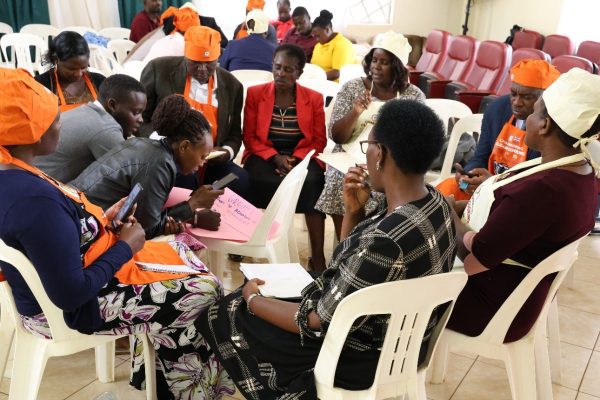
Conclusion & Next Steps
The Kabale electric cooking campaign effectively illustrated the transformative potential of the BCCeC project, by shifting skepticism into support through practical exposure, knowledge-sharing, and open-dialogue. Participants left not only better informed but motivated to champion clean cooking solutions in their homes and institutions. What began with hesitation evolved into engagement and then endorsement. This transition represents more than just a change in cooking methods; it’s a story of how perceptions evolve, how communities adapt, and how progress can honor tradition while embracing innovation.
Moving forward, sustained efforts will focus on follow up engagements, distribution of tailored informational materials, and the exploration of partnerships to address financing and appliance accessibility. With continued support from NREP and its partners, clean cooking is no longer a distant goal but an achievable reality for households across Uganda.


